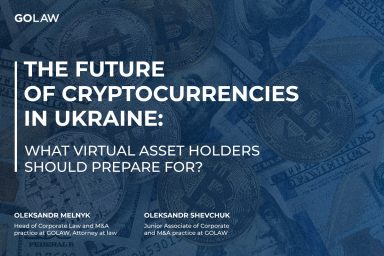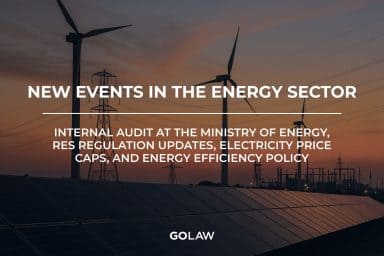“Hardtalk: Renewables in Details” – Prospects and Problems of the “Green” Energy Market have been discussed in Kyiv
State of implementation of the new electricity market and readiness of the Regulator and market participants for the new regime of state support for renewable energy projects – these were the main topics discussed by the TOP market experts during the interview at the “Hardtalk: Renewables in Details” event on March 28 in Kyiv.
Photos are available at: https://bit.ly/2UgPY2u
State of implementation of the new electricity market and readiness of the Regulator and market participants for the new regime of state support for renewable energy projects – these were the main topics discussed by the TOP market experts during the interview at the “Hardtalk: Renewables in Details” event on March 28 in Kyiv.
Among the invited market experts: Anton Gudachenko – Director of Energy Industry Relations Department of the NEURC, Eugene Didichenko – Director KNESS RnD Center, Co-founder of the KNESS group of companies, Narek Harutuynyan – Founder and CEO Rengy Development, Andriy Konechenkov, Chairman of the Board of the Ukrainian Wind Energy Association (UWEA), Rodion Morozov – Head of ecological projects department Ukrgasbank, Ilya Polulyakh – Assistant head (Subcommittee on Electricity of Committee on Fuel and Energy Complex, Nuclear Policy and Nuclear Safety), Kostyantyn Gura – Advisor of the Head of the State Agency of Energy Efficiency and Energy. The moderator of the event was Max Lebedev, Partner at GOLAW Law Firm.
The organizers of the event – A7 CONFERENCES and GOLAW.
The long-awaited Law of Ukraine “On the Electricity Market” full implementation of which is expected to take place on July 01, 2019, became a priority issue for discussion. According to Anton Gudachenko, as of today the National Energy and Utilities Regulation Commission is fully ready for the launch of the new energy market, and the Commission has already prepared all necessary regulatory documents. However, in case of legislative changes in relation to alternative energy sources provisions of the model PPA may also be modified. “This is the only reason why this package (notes – including the model PPA) has not been approved yet”, Anton reassured.
When Max asked regarding specific terms, the speaker noted that the expectation won’t be very long: “If there is no change (notes – to the Law), then in principle we will be able to approve the submitted package already in May and it will not be late, because the main thing that market participants will have to do will be to re-sign contracts with the guaranteed buyer.”
In addition, Anton commented the question on pre-PPAs and the terms of their re-signing, considering that not all market participants have the necessary set of documents. “When we talk about pre-PPA, there is absolutely no problem here, because the deadline for signing the pre-PPA will be the end of the year, and there is also enough time for its re-signing with the guaranteed buyer.
Another issue that the speaker paid considerable attention to was the issue of imbalance of the “green” energy producers. “Imbalance is the difference between the expected and the actual production, since all electrical energy that has been produced must necessarily be purchased by the guaranteed buyer. The producer must have a forecast and must fulfill the applications and contracts according to which he sells this electricity. Accordingly, all electricity generating companies that are part of the balancing group should bear responsibility for it. With a small amendment which is specified in the Law (see – Draft Law No. 8449-д), all companies that have commissioned their plants before adoption of the Law may bear no responsibility for their imbalance. All those who have commissioned their plants from the moment the Law was adopted, and before the date of electric energy market introduction, will bear responsibility for the imbalance according to a certain scale, as defined by the Law”, – said Anton.
Anton stated that the main reason for this situation is a complete lack of responsibility to state institutions, however according to the speaker the situation should radically change in the new electricity market.
This question was also commented by Ilya Polulyakh. According to him, responsibility for imbalances really needs to be introduced, however, only from the moment when “the plants will have a capability to be responsible for the imbalances.” This situation will be possible only with functioning liquid intra-day market, subject to the availability of which the power plants will have an opportunity to conclude contracts within an hour, and, accordingly, to come up with a minimal imbalance on the hour of delivery.
According to Rodion Morozov the launch of such new market will be a gradual process, which will only begin in July 2019. After a year and a half, the plants will already be able to track the price and make certain conclusions. “That is, we assume that by the end of 2021, investors will understand the cost of imbalance. It takes up to 2 years to implement a solar project and up to 3 years to implement a wind project. Indeed that is the reason why the date of full responsibility for the imbalance was set for year 2024. Thus, by 2021, it will be possible to see the cost of imbalance, prescribe it in the financial model and turn to a bank”, he said.
Rodion also mentioned that in spite of the attractiveness of the new Law, there is no point to expect a large influx of investors in 2020, since any change requires careful and thorough study. Preference of one or another energy source by a bank as a commercial organization is given in view of the indicator of demand. Recently solar energy has become the most popular due to the easy market control. As for biogas, for example, the Bank is ready to fund such projects, however, there are currently no EPC-contactors in Ukraine that would be able to engage in such projects on a “turnkey basis” with quality wise. “Of course, a commercial bank can not solve all the questions: if we are talking about development of renewable energy the country should have a development bank that helps at the stage of project financing, and we do not have such a bank at the moment. Commercial banks have limited possibilities: they do not have a right to risk the money of depositors.”
Andriy Konechenkov commented on development of various sources of renewable energy in Ukraine. According to him, there is no point in giving preference to solar, wind or biomass power plants: renewable energy market in Ukraine shall develop harmoniously and simultaneously.
Regarding the launch of the long-awaited auction system, the speaker noted that a significant reduction in the cost of the tariff for “green” energy should not be expected, because in any case, “companies will offer prices, which are economically feasible for them”.
According to Eugene Didichenko, one of the problems that currently worries the market players is the approval of the quota, namely its price and allocation. “At the moment, they are trying to make a hard distribution, for example, 50/50 sun-wind, or 30/60 – there are different opinions. However, I believe that this should be proportional to the offer at the auction. If there are more proposals for the sun or wind, then I think the quota must be allocated accordingly. It would be more flexible and more market-oriented than a clear “blocking”, the speaker said.
Narek Harutyunyan commented on the new law as well. “There will be more systematic investors who look not for a year or two ahead, but for ten even fifteen years. At the moment, all models (for example, the model of market regulation) are not even built up to the end of 2029: our models are built for the service life of the equipment. […] That is, when we talk about a new model of work – this is the usual transformation of the market to the next stage of civilization development. And this stage is inevitable.”
Narek also noted that the attractiveness of the “unpopular” regions in Ukraine for the implementation of the renewable energy project can be described only from the cost efficient point of view: “There should be either cheaper connection, or cheaper land, or a higher tariff to balance the cost of risks with lesser generation”. In such a way, where there will be the greatest return, the auction market will also work better.”
According to Kostyantyn Gura, today the statistics on introduction of renewable energy projects confirms the interest of investors in the Ukrainian market. “All players are waiting for auctions, and we feel that many large institutional investors will be ready to enter Ukraine just after the auctions are launched”, he commented.
As mentioned Max Lebedev, the guests of the event received answers to many controversial questions regarding the “green” energy market that have been remained without specific answers for a long time. “We decided to try a new format of Hardtalk and achieved the desired result of 100%: we had a frank and direct conversation among the energy market participants. The industry experts are not always willing to talk about their plans or share their thoughts on ambiguous issues, but at our event we received the most up-to-date information, which, I am sure, was interesting and useful for all guests”, commented Max.
Maria Barabash, President of A7 CAPITAL, also commented the event: “2019 is the year of the Ukrainian energy. On March 28, we gathered together the key players of the energy market, representatives of state authorities, professional associations and all those interested in the developments of the Ukrainian renewable energy market. We saw that there are a lot of questions to discuss, but at the same time – there is a great desire to strengthen the market. Therefore, in 2019, our company will concentrate precisely on energy events: Ukrainian Energy Cruise will take place on May 31, and the Second Ukrainian Energy Week will be held on September 24-26.”
It worth mentioning that the event was held in a non-standard format: speech of each speaker has been commented by the expert panel which remained on the scene for the whole time. In addition, each speaker had only 25 minutes to talk, and guests of the event were able to personally observe the timing.
Following the official part, all guests have been invited to a cocktail after-party provided by the event’s partner Jack Daniel’s.
A7CONFERENCES and GOLAW are grateful to all guests. See at our new events!
Sign up to be aware
New achievements are inspired by information. GO further, don’t miss out GOLAW news and legal alerts
Our expertise
-
- Antitrust and Competition
- Banking and Finance
- Compliance, Corporate Governance and Risk Management
- Corporate and M&A
- Criminal and White Collar Defence
- Defense in Anti-corruption procedures and regulations
- Labor and Employment
- Natural Resources and Environment
- Government Relations (GR)
- Insolvency and Corporate Recovery
- Intellectual property
- International trade
- Legal support of business and private Сlients in Germany
- Litigation and dispute resolution
- Private clients
- Real Estate and Construction
- Energy and Natural Resources
- Restructuring, Claims and Recoveries
- Martial Law
- Tax and Customs
-
- Agribusiness
- Aviation
- Chemical industry
- Engineering, Construction and Building Materials
- Natural Resources and Environment
- Financial institutions
- IT and AI
- Industry and manufacturing
- Healthcare industries, Life sciences and Pharmaceuticals
- Media, Entertainment, Sports and Gambling
- Retail, FMCG and E-Commerce
- Transport and Logistics
We use cookies to improve performance of our website and your user experience.
Cookies policy
Cookies settings







